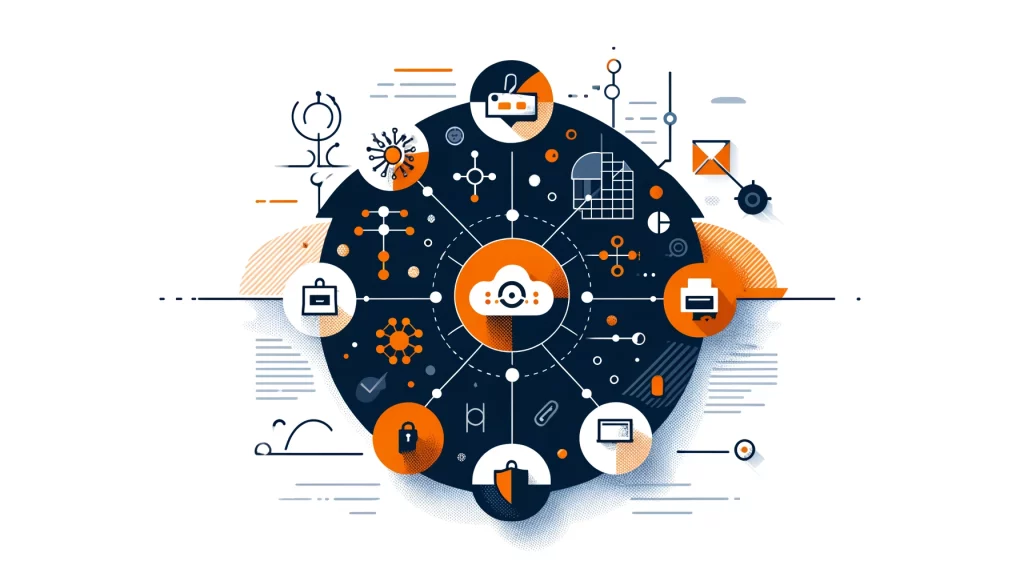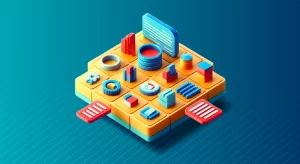
Decentralized Data Access: Enhancing Security, Privacy, and Resilience

People have used old-fashioned access control methods for a long time, but they have weaknesses and restrictions. As computing infrastructure and applications continue to become more distributed, these centralized approaches struggle to keep up. Enter decentralized data access, a promising alternative that addresses the shortcomings of traditional methods.
What is Decentralized Data Access?
Decentralized data access allows individual nodes to make decisions on their own, instead of depending on a central server. In this approach, there is no single point of control or failure. Instead, each node evaluates access requests based on its own security policies and local data, minimizing data security risks.
Nodes in a decentralized access control system communicate with each other to coordinate access decisions. For instance, a node may consult other nodes for recommendations on whether to grant access to a specific user. However, each node makes the final decision locally, rather than a central authority making it.
The Building Blocks of Decentralized Access Control
To enable decentralized data access, every system requires several key components. These building blocks work together to ensure secure and efficient access control without relying on a centralized authority.
Data Access Security Policies
At the core of decentralized access control are data security policies. Each node defines these policies locally to determine which users have access to specific resources. For example, a node may create a policy that grants members of the “admin” group access to configuration settings.
Attribute Data
Nodes store information like access history, reputation scores, usernames, and groups. This data plays a crucial role in access decisions. Nodes manage and share this attribute data among themselves.
Consensus Protocols
To facilitate coordination without a central authority, nodes employ consensus protocols like blockchain. These protocols enable nodes to agree on identity data, policies, access decisions, and more.
Cryptographic Methods
Decentralized access control systems rely on public and private key infrastructure for node login. Digital signatures ensure the integrity and non-repudiation of messages exchanged between nodes, while encryption secures communication channels.
The Advantages of Decentralized Data Access
Decentralized access control offers several compelling benefits compared to traditional centralized approaches.
Enhanced Resilience and Availability
With decentralized data access, each node makes independent access decisions. This eliminates the risk of a single point of failure, such as a central server going down and blocking all access control. As a result, the system becomes more resilient and maintains higher availability.
Scaling Without Bottlenecks
Decentralized access control eliminates the communication bottleneck that occurs when all requests funnel through a central access control server. Since each node makes local decisions, the system can scale by adding more nodes without compromising performance.
Improved Privacy Protection
Decentralized data access keeps identity data and access activities on each node, not in one central database. This method protects user data by limiting breaches to individual nodes, reducing the impact of security incidents on privacy.
Flexible Trust Models
Nodes in a decentralized access control system can implement different trust levels for other nodes and identity attributes. This flexibility allows for contextual trust models that adapt to the specific needs and requirements of each node.
Auditing and Transparency
A blockchain or ledger can record access request transactions immutably, offering robust data access monitoring and auditing capabilities. This transparency ensures accountability and facilitates compliance with regulatory requirements.
Overcoming the Challenges of Decentralized Access Control
While decentralized data access offers numerous advantages, it also presents some challenges that organizations must address.
Managing Complexity
Implementing decentralized systems involves multiple nodes, consensus protocols, and cryptographic methods, which can introduce significant complexity. Organizations must carefully design and manage these systems to ensure smooth operation and maintenance.
Computing Overhead
The cryptographic operations and distributed consensus required for decentralized access control demand more computing resources compared to centralized systems. Organizations must allocate sufficient resources to handle this increased computing overhead.
Network Dependence
Decentralized access control relies on a stable network connection between nodes to facilitate consensus and logging processes. Network outages can cause system disruptions, so it’s important to have strong network infrastructure and backup plans in place.
Ensuring Policy Consistency
With policies defined locally at each node, maintaining consistent access rules across the entire system can be challenging. Organizations must establish guidelines and governance frameworks to ensure policy consistency and avoid conflicts.
Simplifying User Experience
Decentralized resources may need users to manage keys or tokens. This can be harder than using single sign-on systems. Organizations should strive to simplify the user experience by implementing user-friendly interfaces and abstractions.
Decentralized Data Access in Action
Decentralized access control finds applications across various industries, offering unique benefits and enabling secure data sharing.
Healthcare: Secure Patient Record Sharing
In healthcare, decentralized data access enables secure and private sharing of patient medical records between hospitals, insurance providers, and research institutions. By sharing medical records with multiple healthcare providers, each provider can control who has access to the information.
Patients can securely share their medical records with healthcare providers, researchers, and other relevant parties. Decentralized identifiers and zero-knowledge proofs accomplish this task. These technologies ensure the privacy and security of the shared information. Decentralized identifiers let patients choose who sees their info, and zero-knowledge proofs confirm data without revealing sensitive details.
This keeps patients’ information safe and allows for easy teamwork with healthcare providers, specialists, and caregivers. Patients can share medical info easily with advanced tech, leading to personalized and effective healthcare for them.
Financial Sector: Trustless Transaction Validation
Banks and financial institutions can leverage decentralized access control to validate financial transactions without relying on centralized clearing houses. You can create transaction access rules with varying levels of trust. Teams can collectively make decisions on access through multi-signature workflows. Decentralized identifiers allow entities to prove credentials without exposing sensitive information, enhancing security and privacy.
Supply Chain Management: Tamper-Proof Provenance Tracking
Decentralized access control enables tamper-proof provenance tracking in supply chain management. Manufacturers can define access policies that restrict data updates to authorized supply chain nodes, ensuring data integrity. Immutable blockchain ledgers provide transparency and accountability across multi-entity supply chains, enabling end-to-end tracing.
Embracing the Future of Decentralized Data Access
As organizations grapple with the challenges of secure data sharing in an increasingly distributed digital landscape, decentralized data access emerges as a promising solution. By removing single points of failure, enhancing privacy, and enabling flexible trust models, decentralized access control addresses the limitations of traditional centralized approaches.
However, adopting decentralized data access requires careful planning and implementation. Organizations must navigate the complexities of decentralized systems, ensure network stability, and maintain policy consistency. User experience should also be a top priority, making decentralized access control intuitive and seamless for end-users.
Despite these challenges, the benefits of decentralized data access are clear. By embracing this paradigm shift, organizations can unlock new possibilities for secure and private data sharing, fostering innovation and collaboration across industries.
Decentralized access control will be important for data security as the digital world keeps changing. Companies that use decentralized data access will succeed in a time when data protection and privacy are important.
